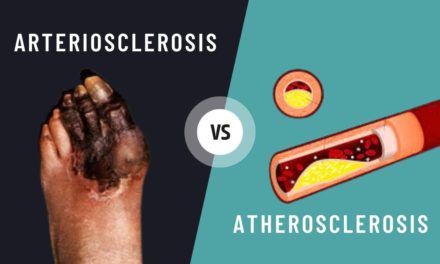High LDL Cholesterol Levels: Understanding, Treating, and Preventing a Silent Health Risk
Introduction:
High LDL cholesterol levels pose a significant health risk and contribute to cardiovascular diseases such as heart attacks and strokes. LDL (low-density lipoprotein) cholesterol, often called “bad” cholesterol, can build up in the arteries, causing plaque to build up and restrict blood flow. Understanding the nature of high LDL cholesterol levels, recognizing their impact on health, and implementing appropriate treatment and prevention strategies are critical to maintaining cardiovascular wellness. In this article, we delve into the world of elevated LDL cholesterol levels, exploring their causes, consequences, treatment options, and precautions.
1. Understanding High LDL Cholesterol Levels:
Cholesterol is a fatty substance produced by the liver and obtained from certain foods. LDL cholesterol is responsible for transporting cholesterol to different parts of the body. When LDL cholesterol levels are elevated, excess cholesterol can build up in the arteries, forming plaque and causing atherosclerosis.
2. Causes and Risk Factors:
Several factors can contribute to elevated LDL cholesterol levels:
- a Unhealthy diet: Eating high in saturated and trans fats, cholesterol and processed foods can raise LDL cholesterol levels.
- b Sedentary lifestyle: Lack of physical activity and a sedentary lifestyle can lower HDL (high-density lipoprotein) cholesterol (“good” cholesterol) and increase LDL cholesterol levels.
- c Obesity: Excess body weight, especially abdominal obesity, can lead to elevated LDL cholesterol levels.
- d Genetics: Inherited genetic conditions, such as familial hypercholesterolemia, can cause elevated LDL cholesterol levels.
- e Age and sex: LDL cholesterol levels increase with age and are usually higher in men until menopause.
3. Consequences and Health Risks:
High LDL cholesterol levels significantly increase the risk of cardiovascular disease, including:
- a Atherosclerosis: Elevated LDL cholesterol can cause plaque to form in the arteries, narrowing blood vessels and obstructing blood flow.
- b Heart disease: Atherosclerosis can lead to coronary artery disease, which can lead to chest pain, heart attack, and heart failure.
- c Stroke: Plaque buildup in the arteries supplying the brain can cause stroke, leading to nerve damage and possible disability.
4. Treatment Options:
Treatment for high levels of LDL cholesterol involves a combination of lifestyle changes and, in some cases, medication. The following methods are commonly used:
- a Lifestyle changes: Adopt a heart-healthy diet, such as a Mediterranean diet, rich in fruits, vegetables, whole grains, lean protein and healthy fats. Limiting saturated and trans fats, cholesterol, and processed foods is important. Regular exercise, weight management, smoking cessation, and stress reduction techniques are also important.
- b Medications: Statins are usually prescribed to lower LDL cholesterol levels by blocking its production in the liver. Other medications, such as bile acid sequestrants, PCSK9 inhibitors, and cholesterol absorption inhibitors, may be used in certain cases.
5. Prevention Strategies:
Preventing high LDL cholesterol levels involves adopting healthy lifestyle habits and managing risk factors:
- a Healthy diet: Choose foods low in saturated fat, trans fats, and cholesterol. Increase consumption of fruits, vegetables, whole grains and lean protein.
- b Regular exercise: Get at least 150 minutes of regular physical activity each week, such as aerobic exercise.
- c Maintain a healthy weight: Achieve and maintain a healthy weight through a balanced diet and regular exercise.
- d Smoking cessation: Quit smoking or avoid exposure to secondhand smoke, as smoking raises LDL cholesterol levels and damages blood vessels.
- e Regular check-ups: Schedule regular check-ups with a healthcare professional to monitor cholesterol levels and discuss preventative measures.
- f Limit alcohol consumption: Limit alcohol intake, as excessive alcohol consumption can raise LDL cholesterol levels and contribute to other health problems.
Result:
High LDL cholesterol levels are an important risk factor for cardiovascular disease. By understanding the causes, recognizing the consequences, and implementing appropriate treatment and prevention strategies, individuals can effectively manage their cholesterol levels and promote cardiovascular wellness. It is important to adopt a heart-healthy lifestyle, get regular medical check-ups, take prescribed medications when needed, and manage risk factors. By prioritizing prevention, raising awareness, and advocating for a healthier society, we can combat the silent health threat of high LDL cholesterol levels and ensure a better future for all.










